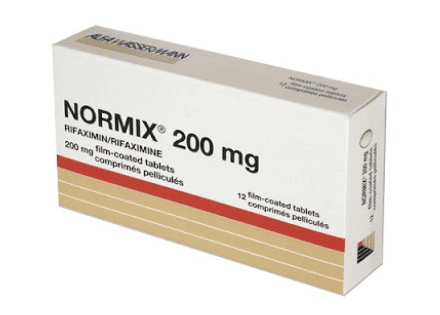This is an automatically translated article.
The article is professionally consulted by Master, Doctor Mai Vien Phuong - Gastroenterologist - Department of Medical Examination & Internal Medicine - Vinmec Central Park International General Hospital.Gluten intolerance is an intestinal disease caused by an allergy to gluten, with an incidence of about 1%, similar in both sexes, and can occur at any age. The disease causes inflammation and aplasia of the small intestine that reduces the ability to absorb nutrients and can lead to dangerous complications if not diagnosed and treated early.
1. What is Celiac Disease (Gluten Intolerance)?
Celiac disease, also known as gluten intolerance, is a disease caused by a reaction to gluten, preventing the body from absorbing gluten-containing foods. Gluten are different proteins found in wheat and in other grains such as barley and rye.Celiac disease leads to inflammation and aplasia of the lining of the small intestine causing a series of digestive disorders, reducing the ability to absorb nutrients in the small intestine.
The disease can occur at any age or may appear early in childhood and is often associated with other autoimmune diseases such as type 1 diabetes, autoimmune thyroiditis...
Usually the treatment of the disease Mainly dietary changes. It can be controlled by following a gluten-free diet, which means you don't eat any foods that contain gluten. The application of this diet can be troublesome, but if not adhered to, the disease can return and the patient at that time cannot be detected.
2. Causes of disease

Celiac disease usually will not show symptoms if there is no causative factor, the disease will develop when encountering the following factors:
When eating foods containing gluten such as wheat, barley, oats. The immune system attacks and damages the small intestine. Too much stress Intestinal infection Having a baby or having surgery
3. What are the symptoms of Celiac disease?
In children: Children often present with gastrointestinal symptoms such as abdominal pain, vomiting, diarrhea, and unusually foul-smelling and greasy stools. The child may be underdeveloped, have little or no weight gain, be irritable, fussy, or play less. More severe than children appear signs of malnutrition such as large abdomen, atrophy of thigh muscles and flat buttocks,... Adults: Often rarely see manifestations on the gastrointestinal tract, multiple stools are poor health, including fatigue, bone or joint pain, irritability, anxiety and depression, in women may lose their menstrual cycle. The disease causes malabsorption of nutrients, minerals and vitamins An inability to absorb carbohydrates and fats can cause weight loss and growth retardation in children and fatigue or lack of energy. Anemia can be caused by: Decreased absorption of substances involved in the formation of red blood cells such as iron, folic acid, vitamin B12. Iron malabsorption can cause iron deficiency anemia, and folic acid and vitamin B12 malabsorption can lead to megaloblastic anemia. Malabsorption of calcium and vitamin D can cause a decrease in the mineral content of the bones or osteoporosis (weakening of the bones and increased risk of fragile bones). Selenium malabsorption in celiac disease, combined with the low selenium content of many gluten-free foods, puts a risk of selenium deficiency. A small percentage have abnormal blood clotting due to vitamin K deficiency and an increased risk of abnormal bleeding. often. Lactose intolerance (reduced digestion of dairy products) is a fairly common symptom in patients with Celiac disease of any age. Dermatitis herpetiformis (vesicles) and ulcers of the oral mucosa are also common signs in people with Celiac disease.4. Is celiac disease dangerous?

Gluten damages the lining of the small intestine in people with Celiac disease. This condition will prevent your body from absorbing many nutrients from food leading to fatigue, susceptibility to infections and a host of other disorders such as blood clotting disorders.... Celiac disease. leads to an increased risk of both lymphoma and carcinoma of the small intestine. Chronic and untreated disease can lead to other complications, such as ulcerative colitis and scarring of the small intestine . Therefore, when you suspect that you have the disease or if you have a family member with Celiac disease, you should go to the doctor and do an early diagnosis test.
Celiac disease left untreated for a long time can lead to serious complications, but the disease can be controlled by following a gluten-free diet, which means not eating any foods containing gluten. By following the right diet, the damage caused by Celiac disease can be restored and you feel better. What needs to be done is that you need to be detected early through medical examination and diagnostic tests.
With nearly 10 years of experience in the field of Gastrointestinal Endoscopy, Master, Doctor Mai Vien Phuong has successfully performed many complicated endoscopic interventions, detecting many digestive cancer lesions at an advanced stage. early, bringing health and peace of mind to many patients. Doctor Phuong specializes in early cancer diagnosis in stomach and colon, endoscopic retrograde cholangiopancreatography in the treatment of biliary tract stones, biliary atresia, cholangiocarcinoma, biliary fistula and treatment of cardiac spasms with technique of opening muscle through the mouth to treat cardiac spasms.
Please dial HOTLINE for more information or register for an appointment HERE. Download MyVinmec app to make appointments faster and to manage your bookings easily.














